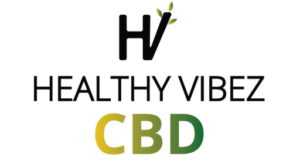Does CBD Make You Feel Hungry?

Unraveling the Science Behind CBD’s Effects On One’s Appetite
In recent years, Cannabidiol, commonly known as CBD, has gained much popularity due to its potential health advantages. And it all happened due to many studies proving that CBD has considerable therapeutic effects.
And therefore, in an attempt to find relief, many people are turning to CBD to manage stress, anxiety, pain, and sleep.
However, there has been much speculation regarding one aspect of CBD use. In this article, we will look into the scientific literature to answer one of the most frequently asked concerning the use of CBD.
“Does CBD increase appetite?” Or “Does CBD make you feel hungry?”
Before giving a clear answer to this question, let’s look into the science and the mechanism involved to understand how CBD affects our bodies.
CBD Effects On The Body
In order to understand how CBD affects the appetite and/or stimulates hunger, understanding the underlying science behind the impact of CBD on our bodies is paramount.
Cannabidiol (CBD) interacts with the Endocannabinoid system (ECS), a complex cell-signaling mechanism involving neurotransmitters spread throughout the human body. These neurotransmitters bind with the cannabinoid receptors and influence neural synaptic communication and biological functions. And therefore, affecting.
- Learning and memory
- Sleep
- Mood
- Inflammation
- Pain control
- Reproduction, and
- Hunger
You might be wondering: Do CBD and THC have the same roles, given that they are cannabinoid compounds interacting with the ECS system and affecting appetites?
The answer to this question is a bit complex. Let us explain the mechanism with ease.
CBD VS THC — Mechanism Explained
Most people mistake CBD for THC and vice versa, mainly because both come from the same plant source, i.e., Cannabis sativa. And, despite sharing the same chemical composition, both compounds have different chemical structures.
When these cannabinoid compounds enter the body, they immediately bind with the ECS receptors and influence different biological functions, as mentioned above.
However, THC is the only compound that possesses psychoactive properties. Meaning: it gives the “high” sensation to recreational cannabis smokers. In addition to that, THC is also notoriously known for increasing appetite or, more commonly: giving “munchies” to the users.
When THC enters the body, it goes straight to the endocannabinoid receptor (CB1) sites and binds with them. The said receptors are responsible for appetite-stimulating hormones, i.e., ghrelin and leptin. The brain releases ghrelin when the stomach is empty and stimulates hunger.
However, THC can stimulate ghrelin release even on a full stomach. In addition to that, THC is responsible for increasing dopamine output, which results in the high consumption of caloric-dense food in cannabis users.
While on the contrary, CBD is a non-intoxicating compound with no euphoric effects as THC. And for the very same reason, CBD is widely sold as a food supplement to support the ECS system, regulating stress, anxiety, and sleep
Now the main question arises: “Does CBD have a similar effect on appetite as THC?”
Does CBD Make You Feel Hungry?
No. CBD has the opposite effect on your body, unlike THC.
There is evidence suggesting that CBD stimulates hunger. However, some researchers have concluded an entirely different impact of CBD on appetite.
Implying that CBD works on suppressing the appetite.
Studies have suggested that CBD plays an antagonist for CB1 receptors and inhibits the release of ghrelin hormone. And, ultimately, suppressing hunger.
And this is where another question arises.
Does CBD Help In Weight Loss?
Some studies have suggested that CBD does help in reducing food intake. However, there is not much research done to further prove the CBD association with appetite-stimulating hormones and its effect on appetite control. More studies have yet to come forward with a much clear conclusion.
According to a 2016 study, CBD can affect metabolism by converting the obesity-associated white fat into brown fat, i.e., calorie-burning fat. This phenomenon is termed “Thermogenesis,” which leads to fat loss and reduced appetite.
Another study suggests that using CBD products might result in reduced food intake due to its interference with some metabolic processes, such as glucose regulation and insulin sensitivity. But again, there is not much research available to support this claim.
The bottom line: CBD does not directly help you lose weight. However, some indirect associations between CBD and appetite-stimulating hormones might result in reduced caloric intake.
Final Word
CBD products or oils do not make you feel hungry at all. Instead, they cause less binge eating and appetite suppression by inhibiting appetite-stimulating hormones.
But should you take CBD knowing that it suppresses hunger?
Yes, only if you want to
If CBD products spike your interest, but the only thing holding you back from using them is the fact that it “messes” with your appetite, keep in mind that they also offer therapeutic benefits. And including all those pain-relieving benefits without making you feel high.
It is a pretty good package, we must admit!
FAQs About CBD Products
1. Does CBD Affect Appetite?
Yes, it does affect your appetite and eating pattern. Some studies have suggested that cannabidiol has an anorectic effect interposed by suppressing CB1 and CB2 receptors, reducing food intake in cannabis users.
2. Do Cannabinoids Make You Hungry?
Yes. Tetrahydrocannabinol, commonly known as THC, is among the cannabinoid compounds that are known to have an orexigenic effect, meaning they cause hunger. However, unlike THC, CBD does not stimulate hunger.
3. Should I Eat When I Take CBD?
Yes. Studies suggest that CBD should be taken after consuming food, preferably high-fat food, to maximize absorption.
4. Is CBD Better In The Morning Or Night?
There is no evidence available suggesting the best time to take CBD products. However, if you wish to take CBD in the mornings to reduce stress or relieve pain, note that it could induce sleep, and you may end up taking a long nap.
5. When Should You Avoid CBD?
Research experts have recommended avoiding consuming any CBD product while driving as it has a sedative effect and can make you fall asleep. Pregnant and breastfeeding women should also avoid CBD products.
